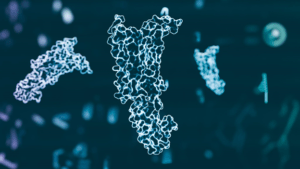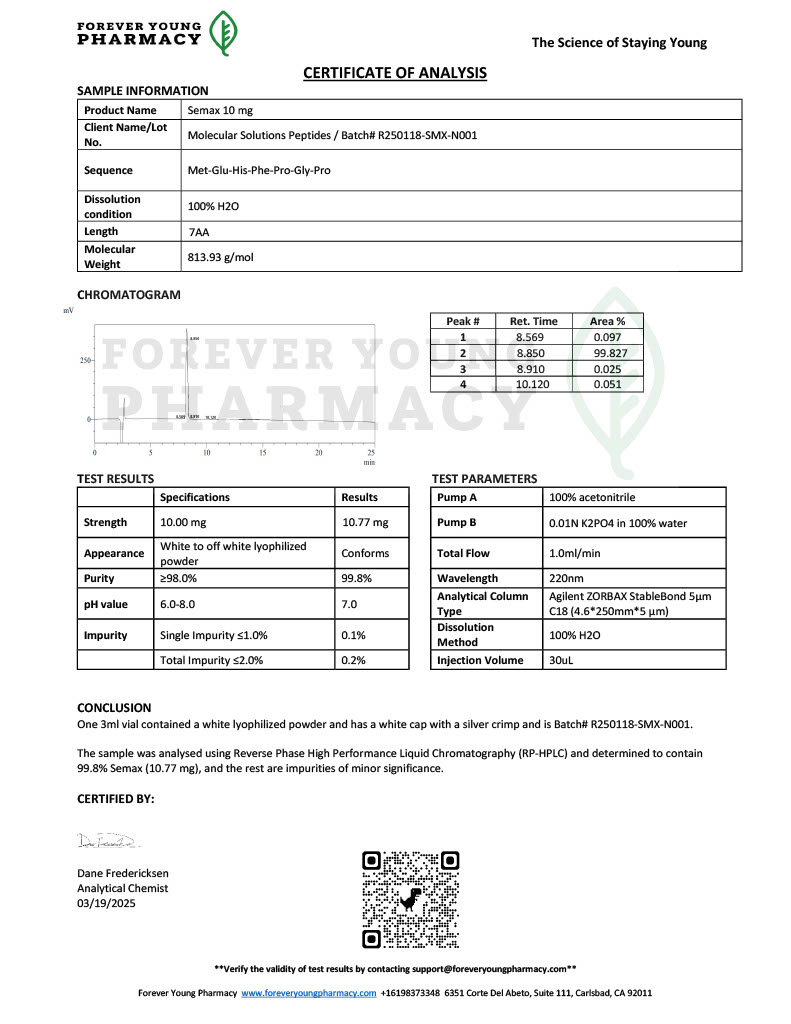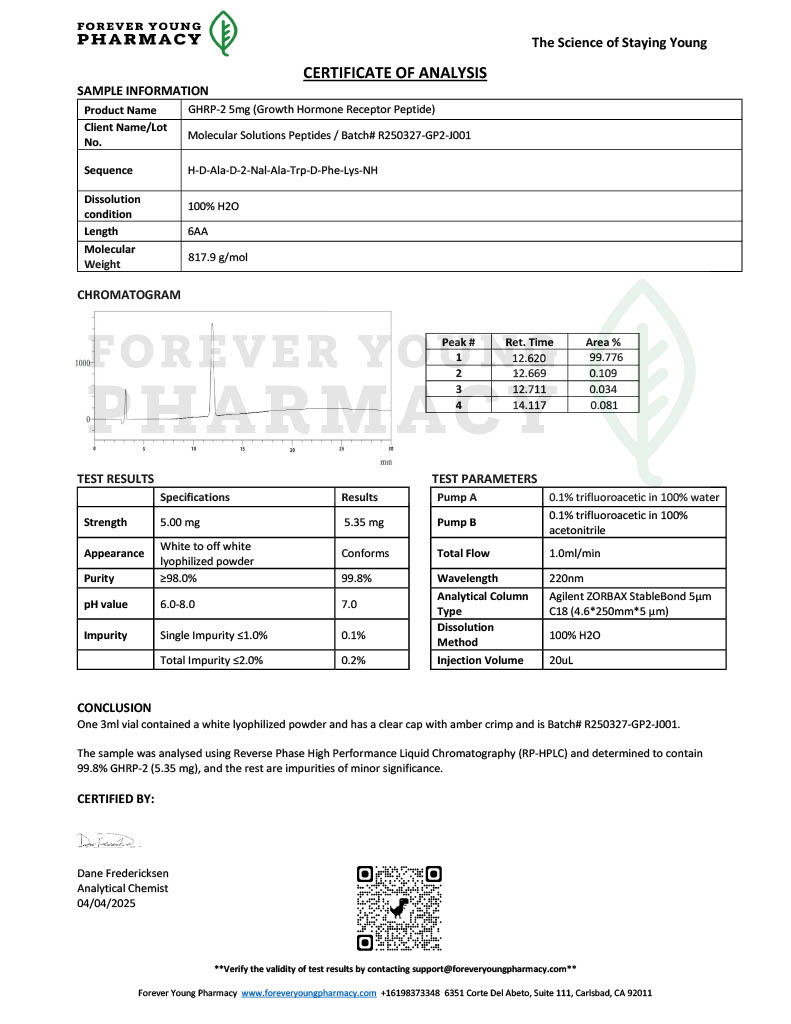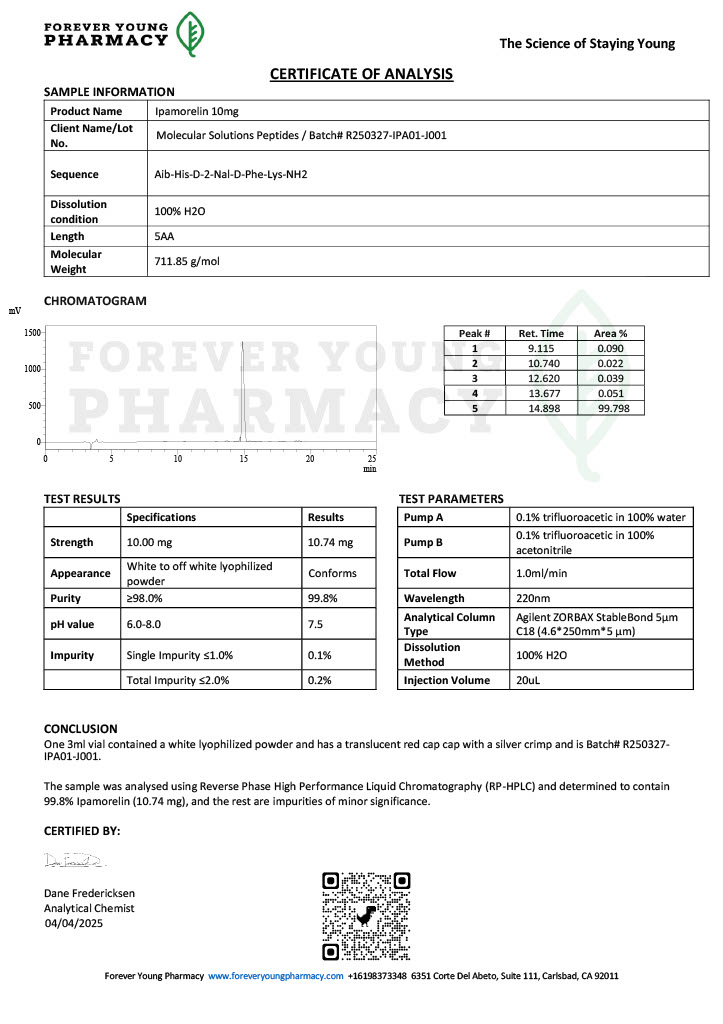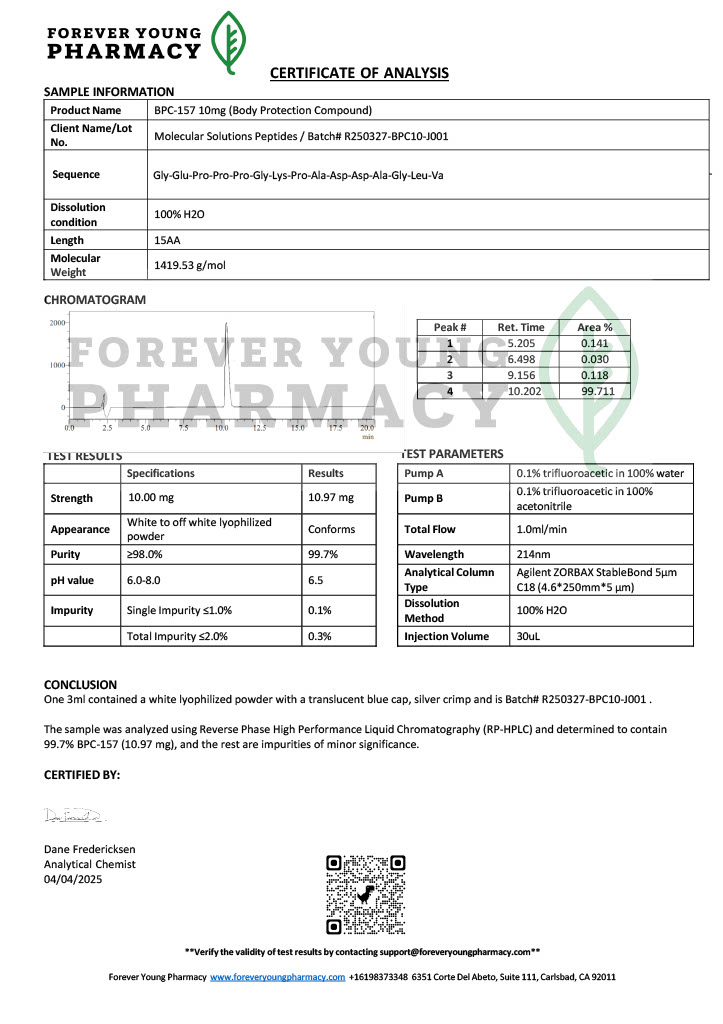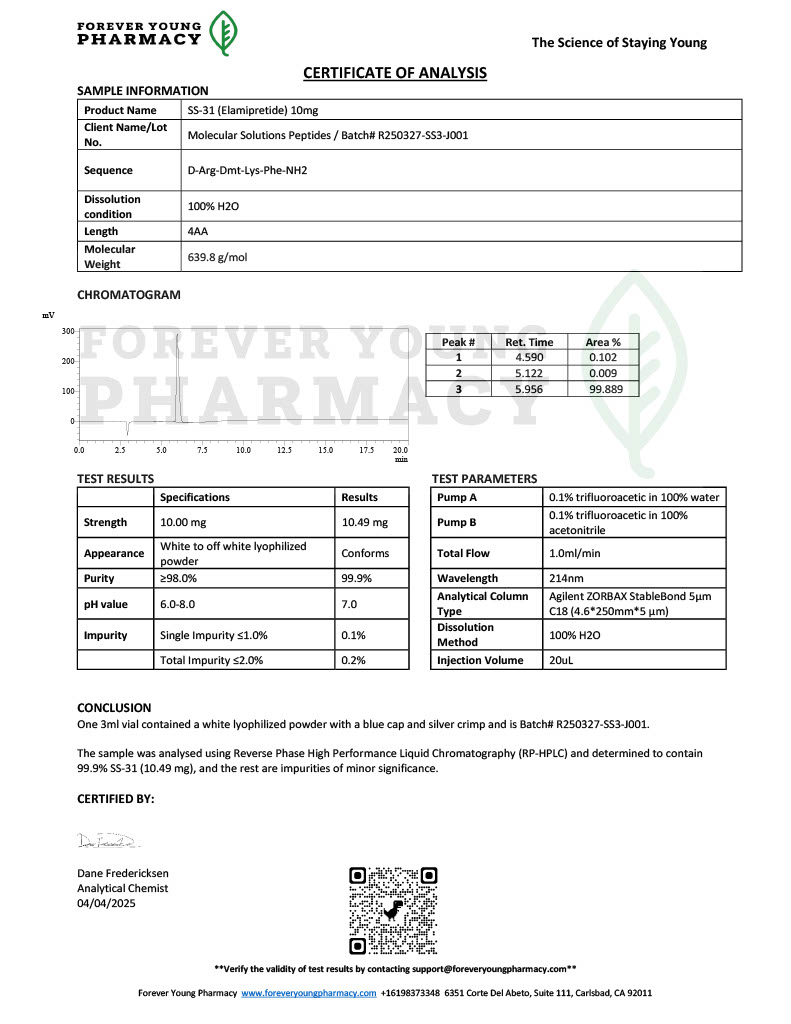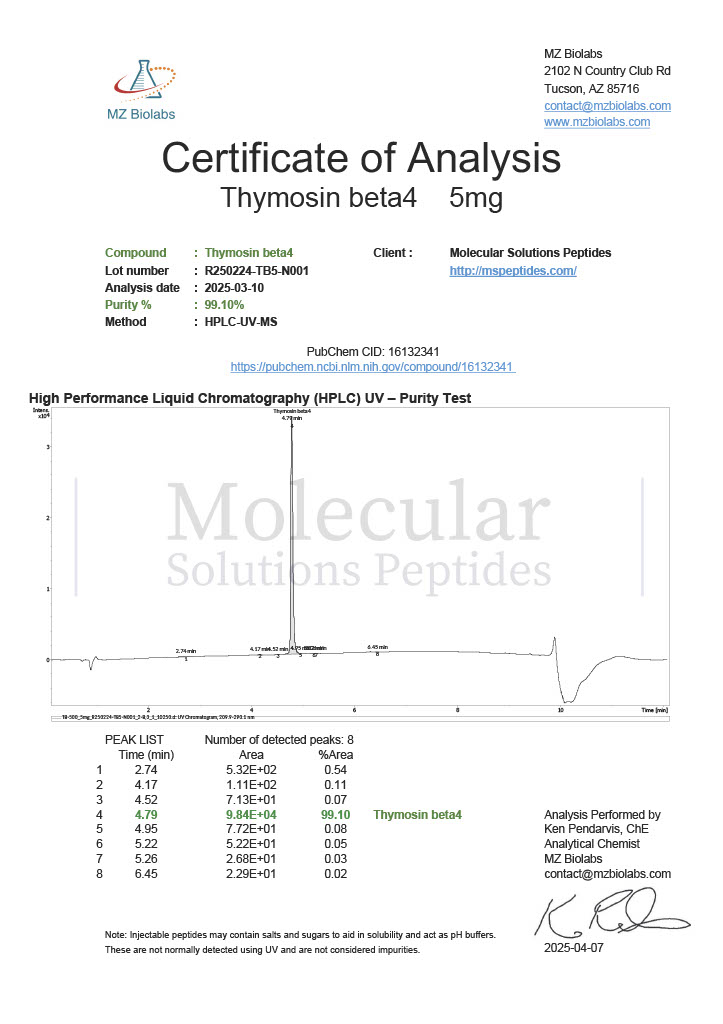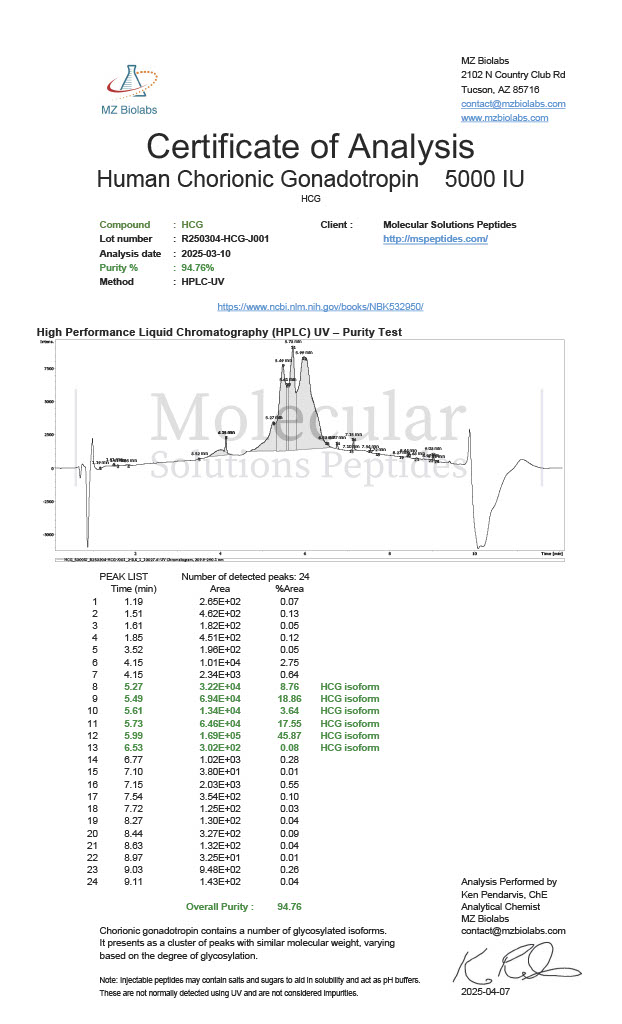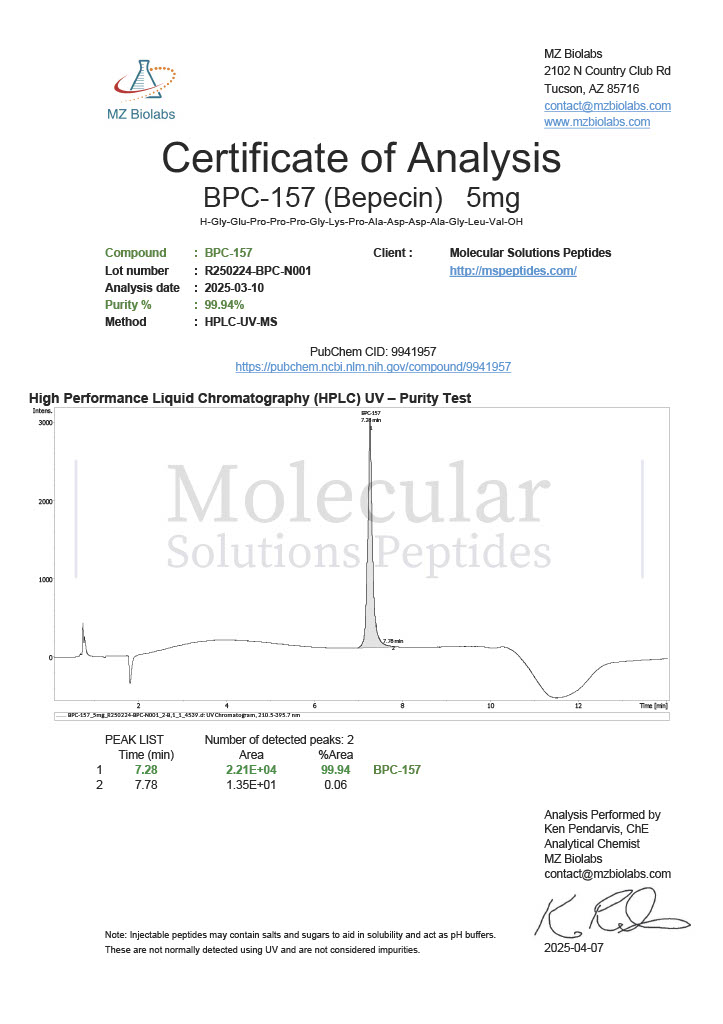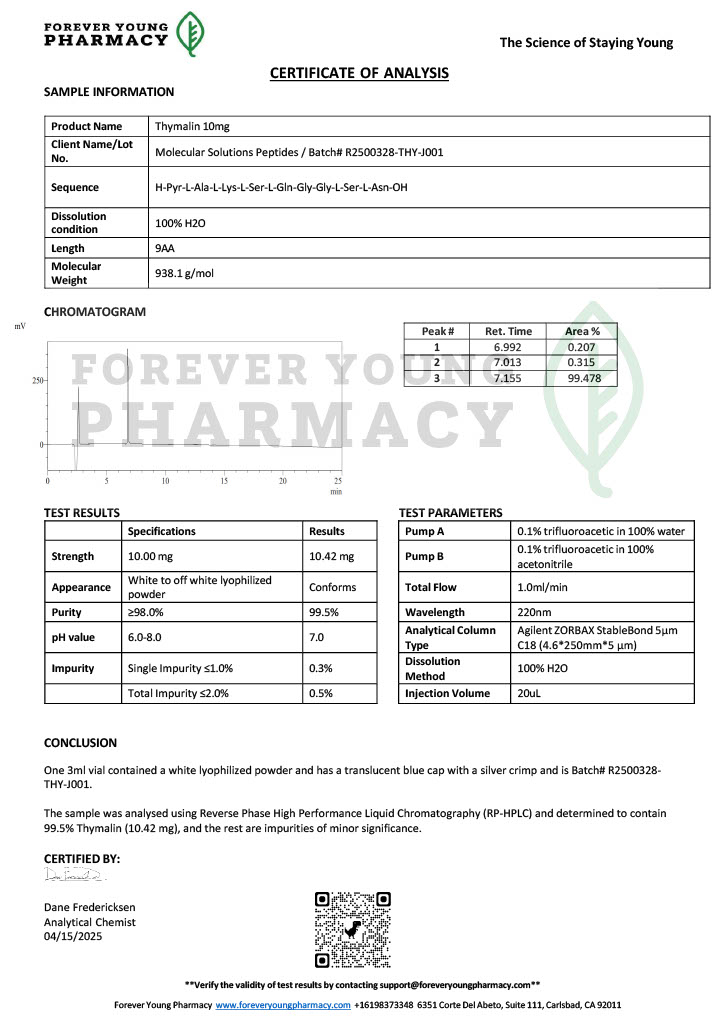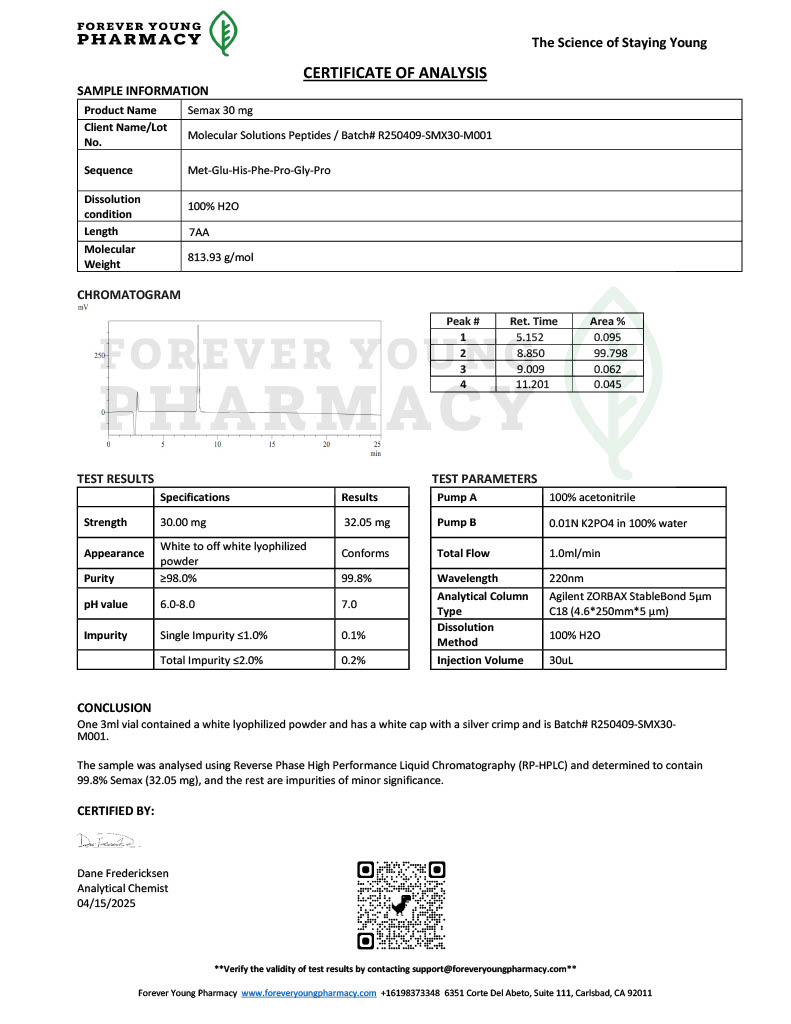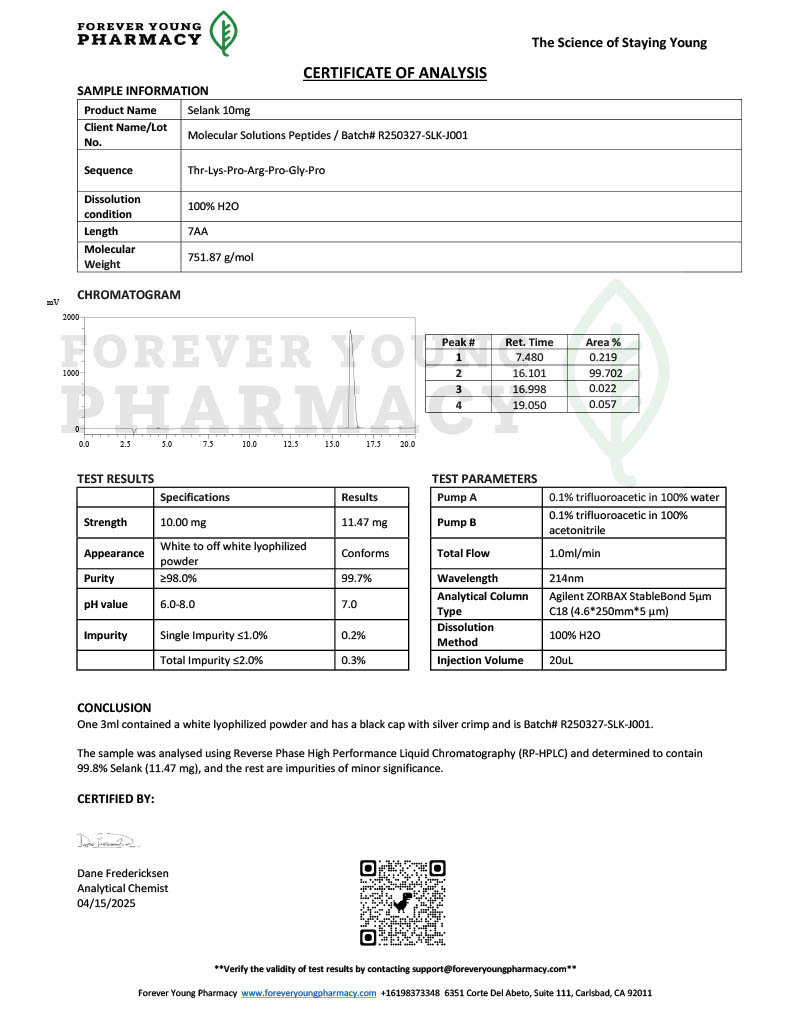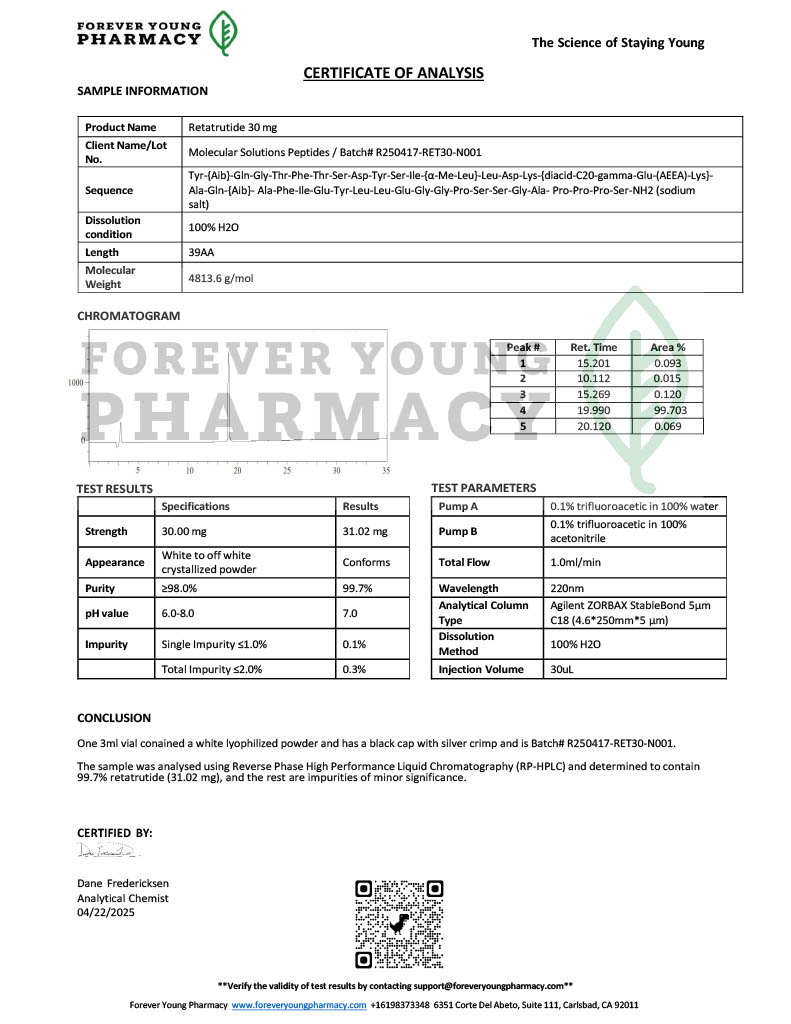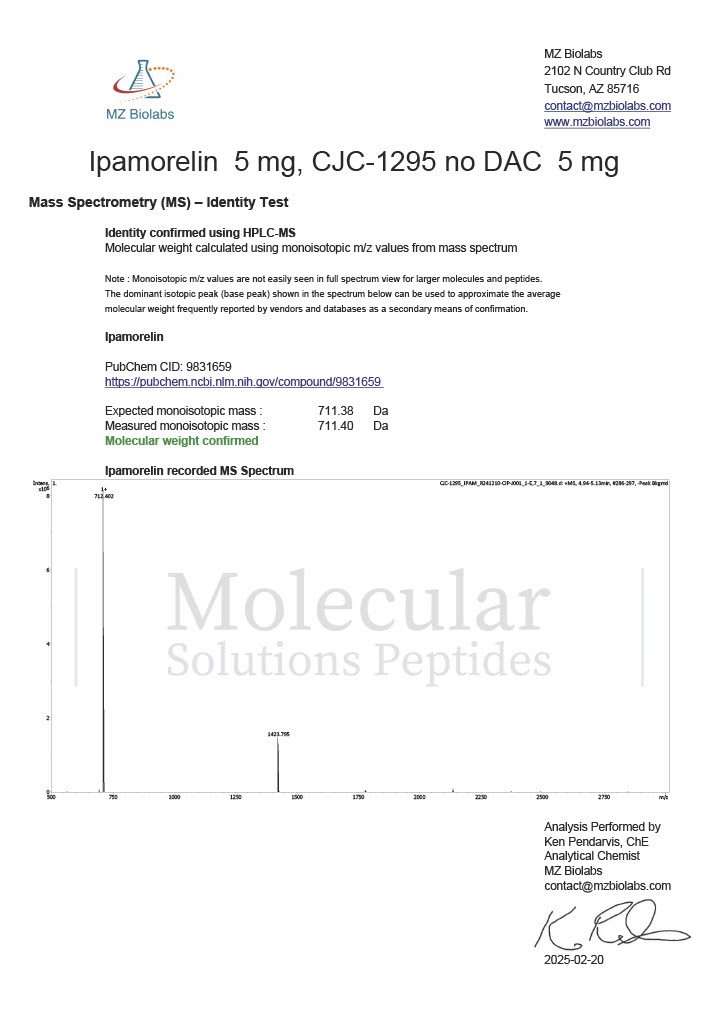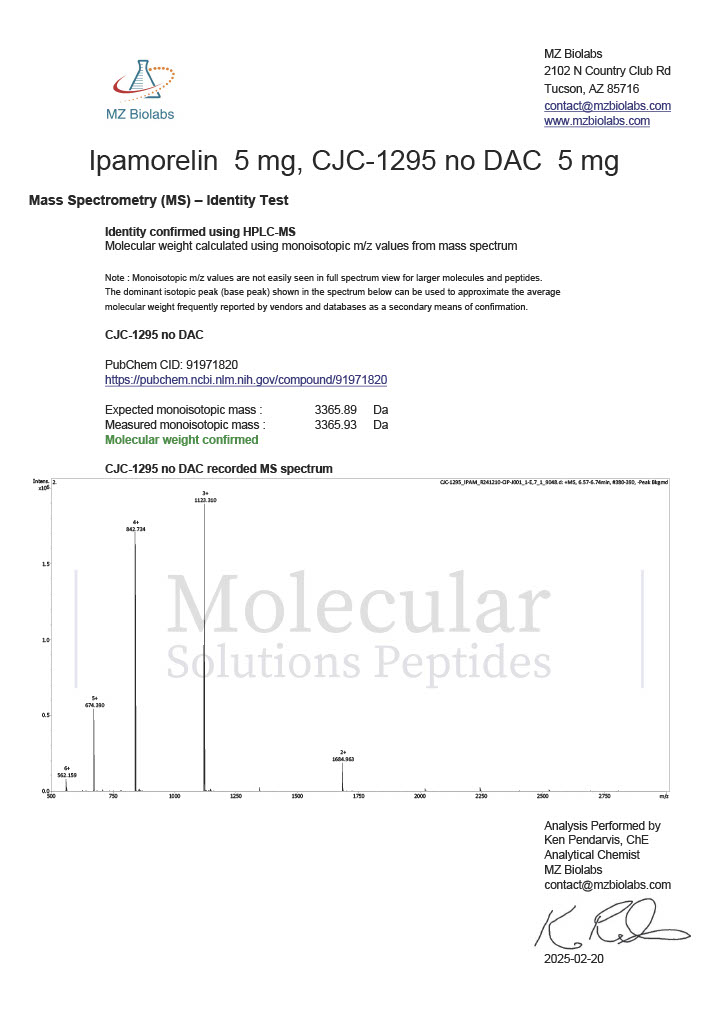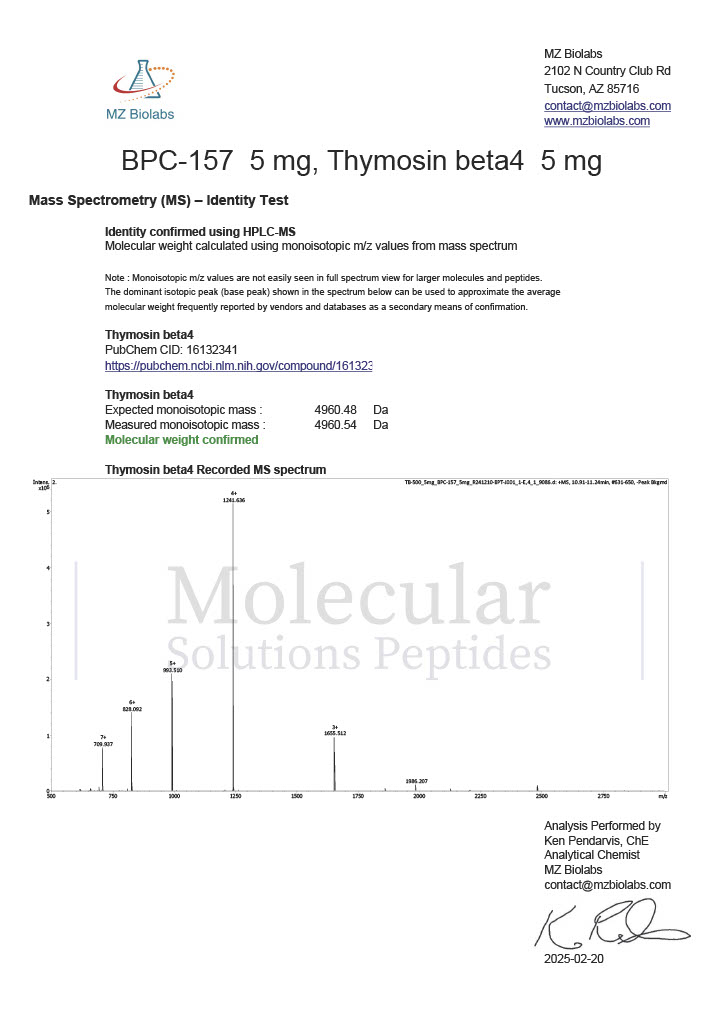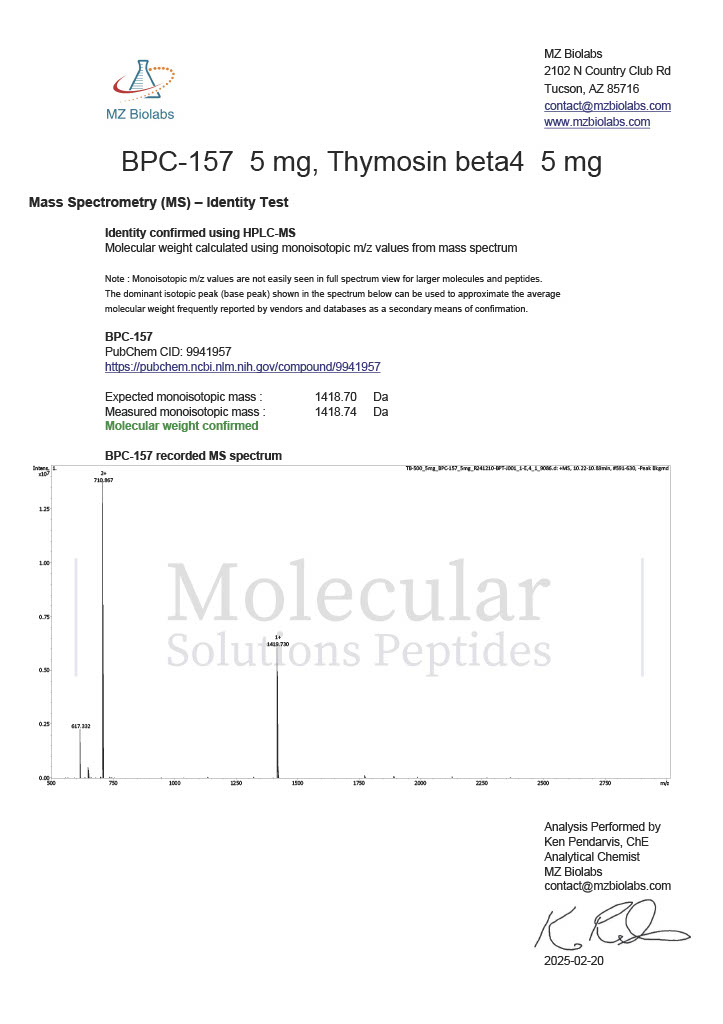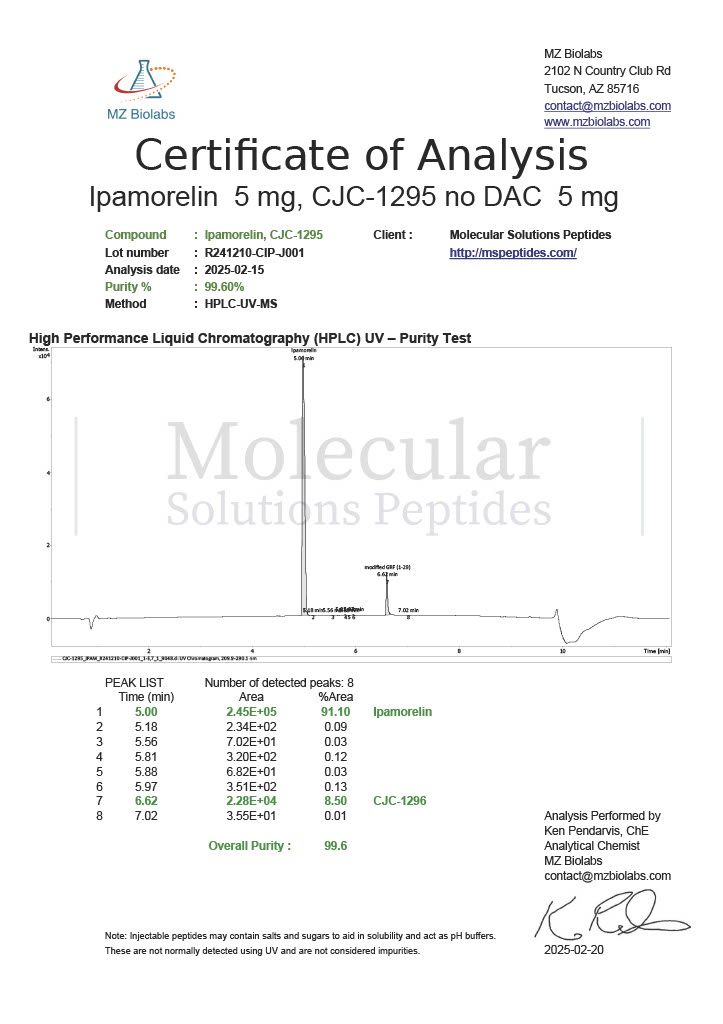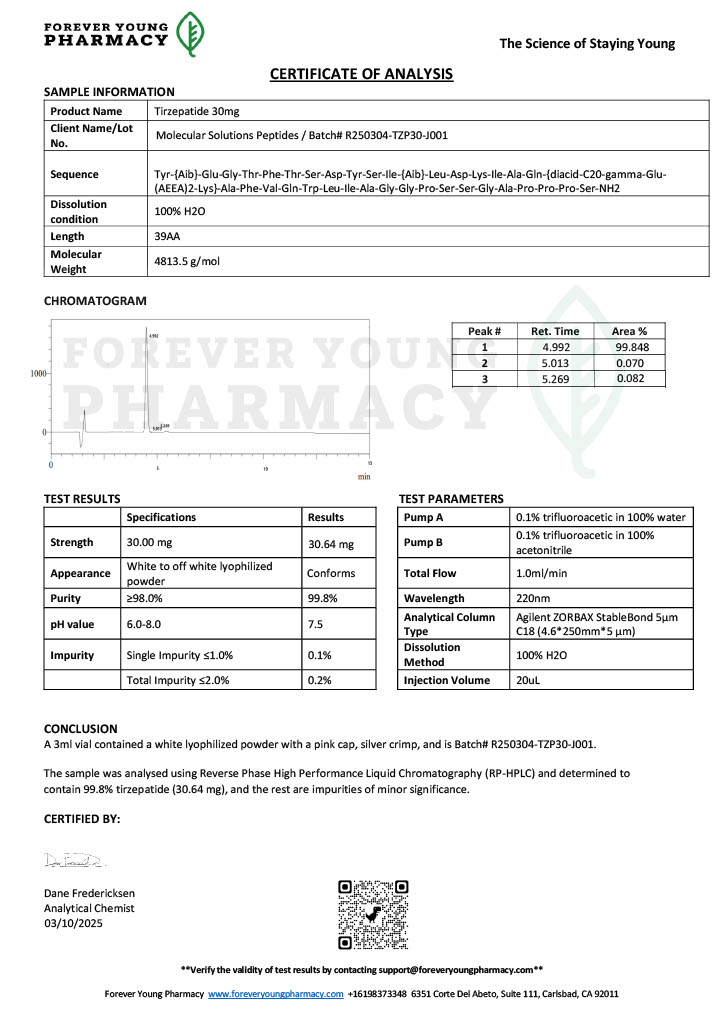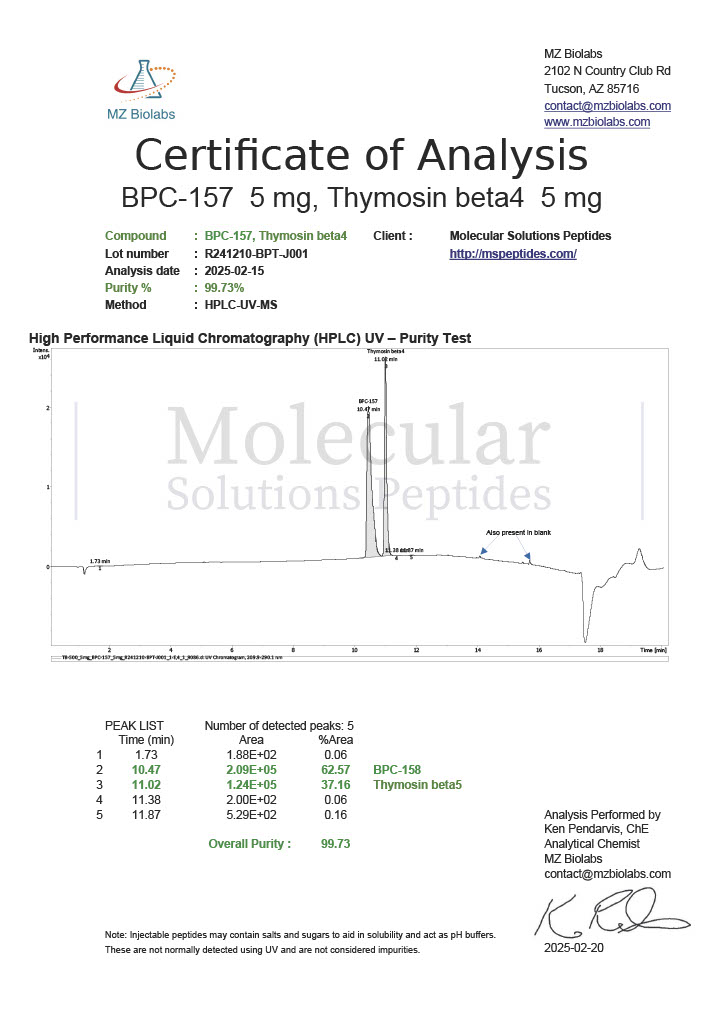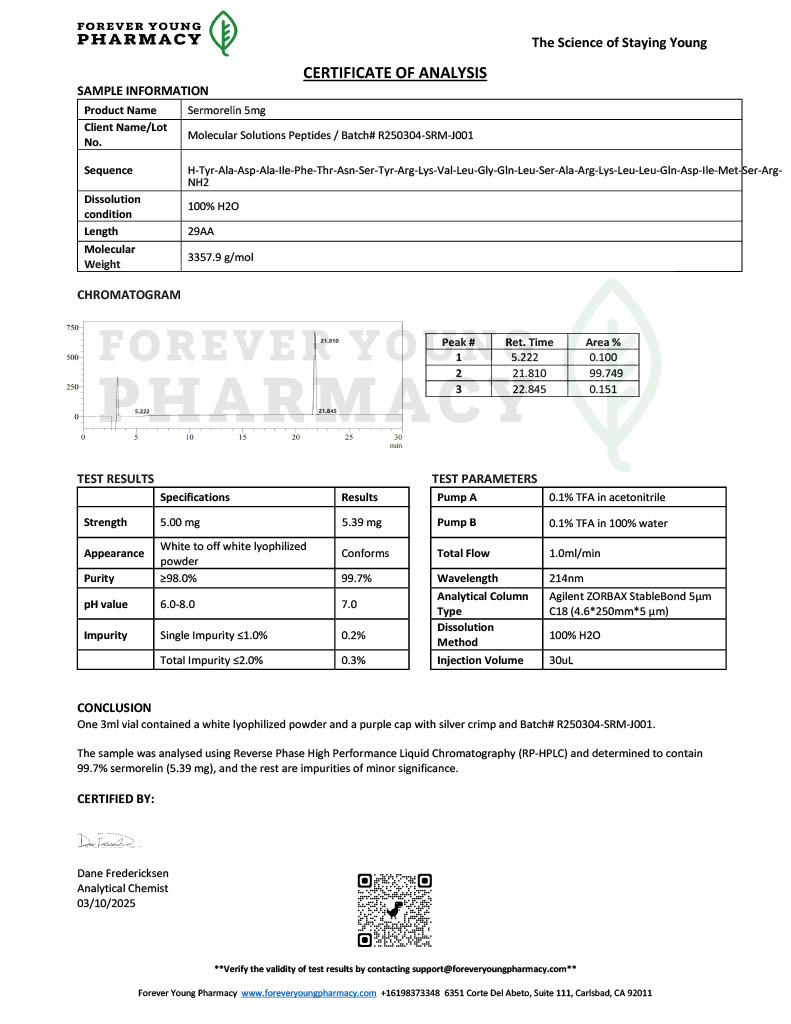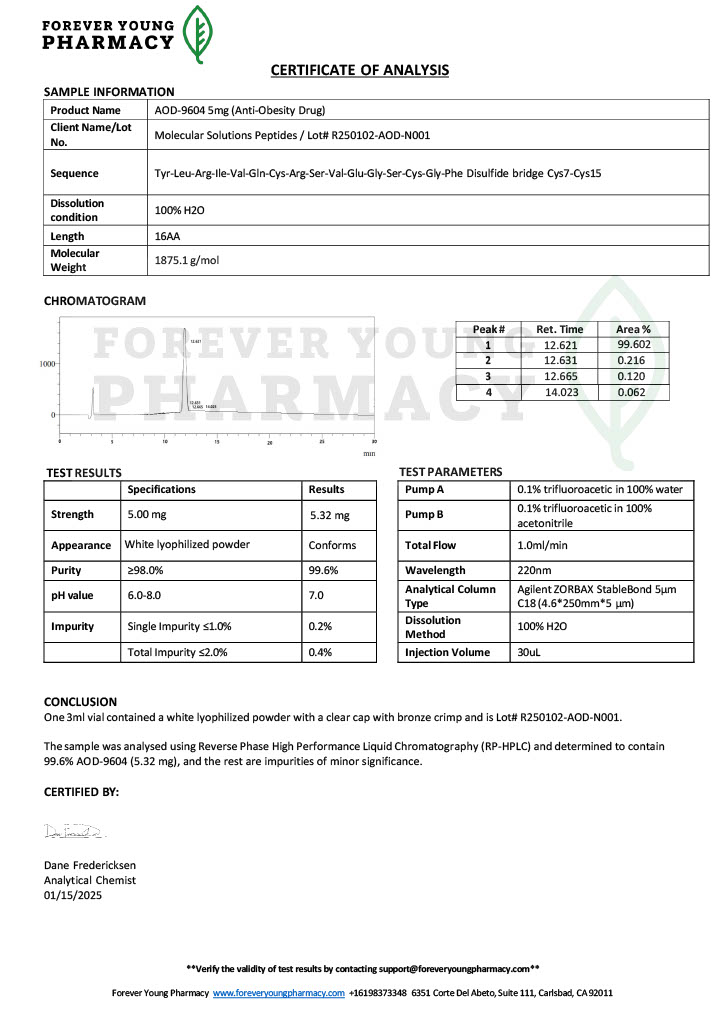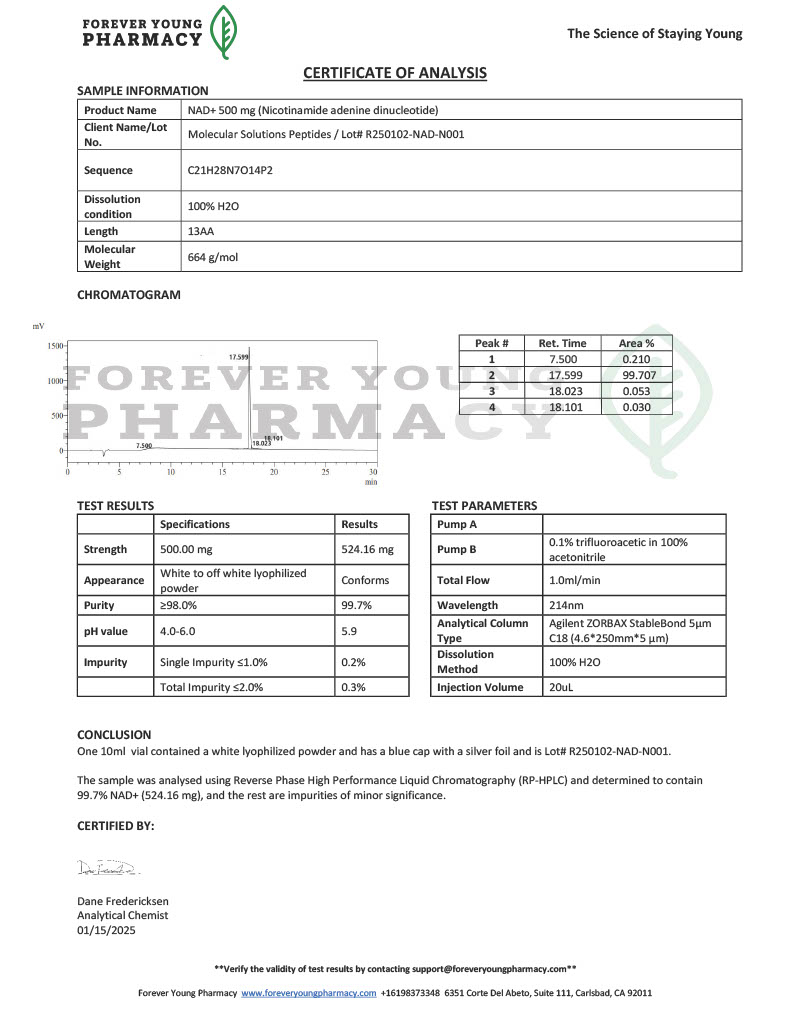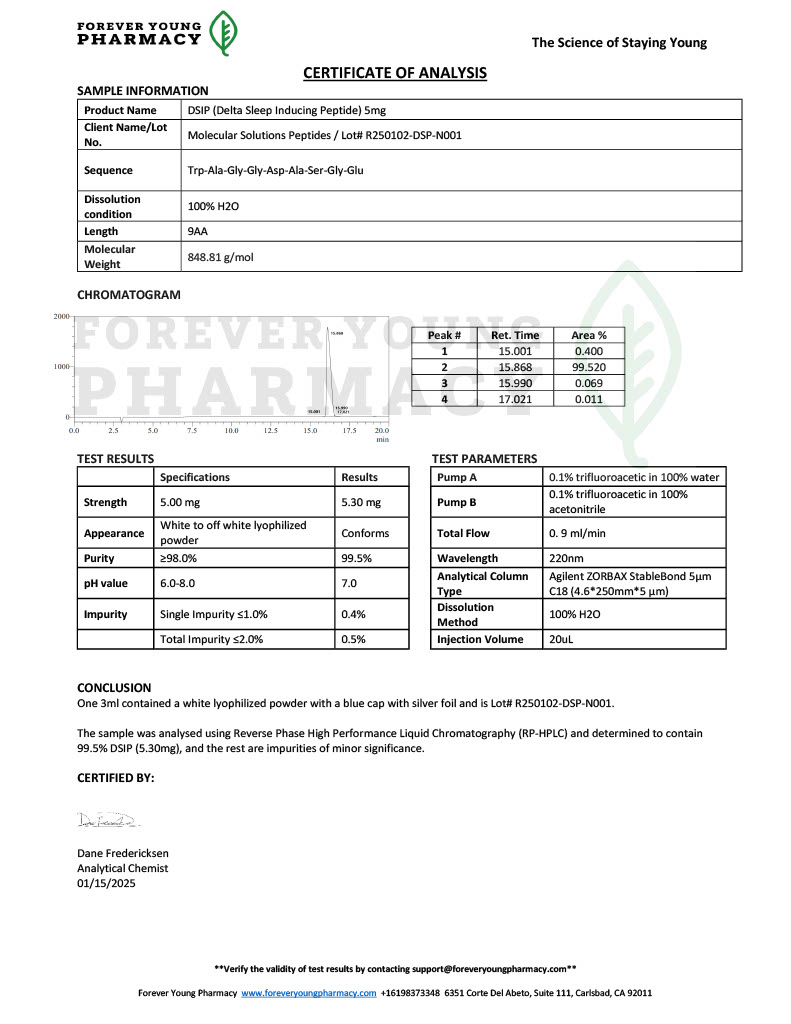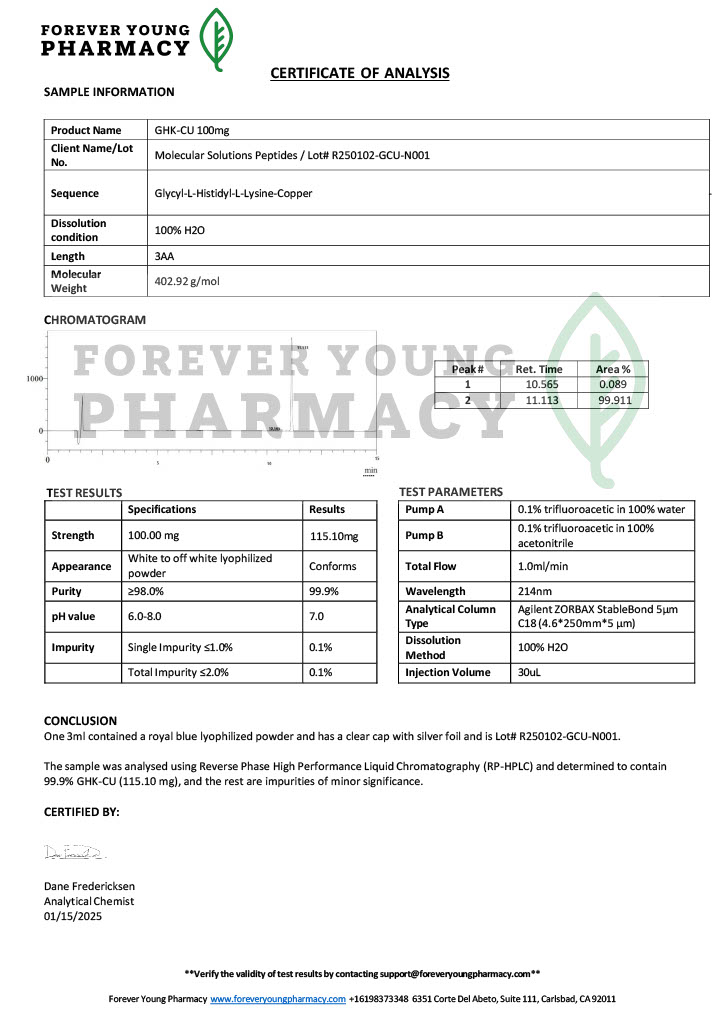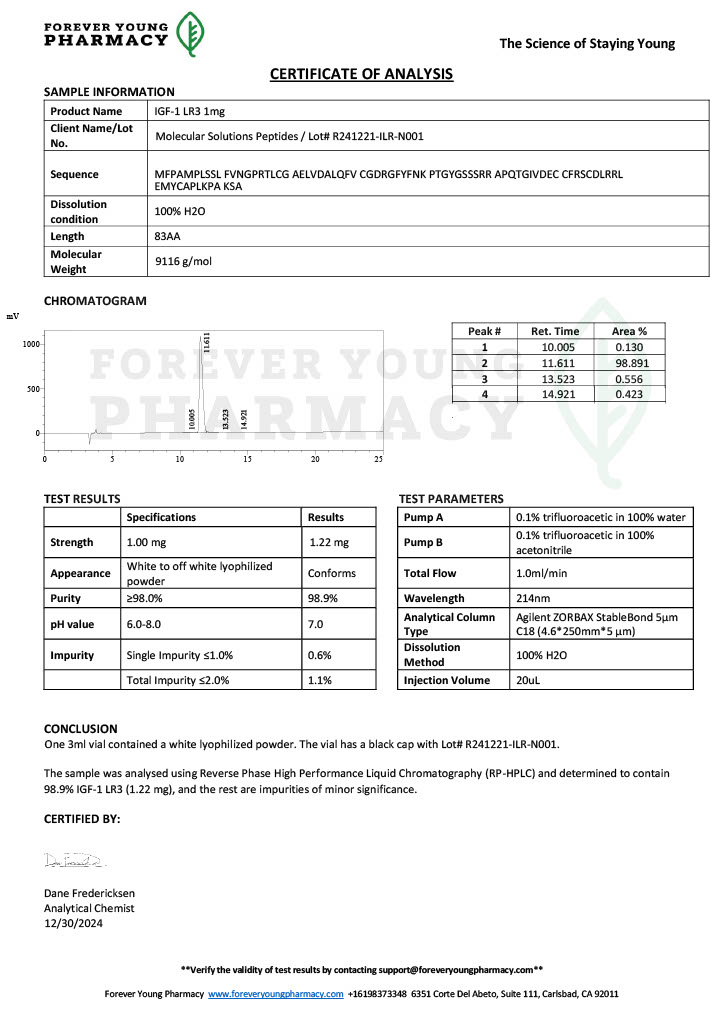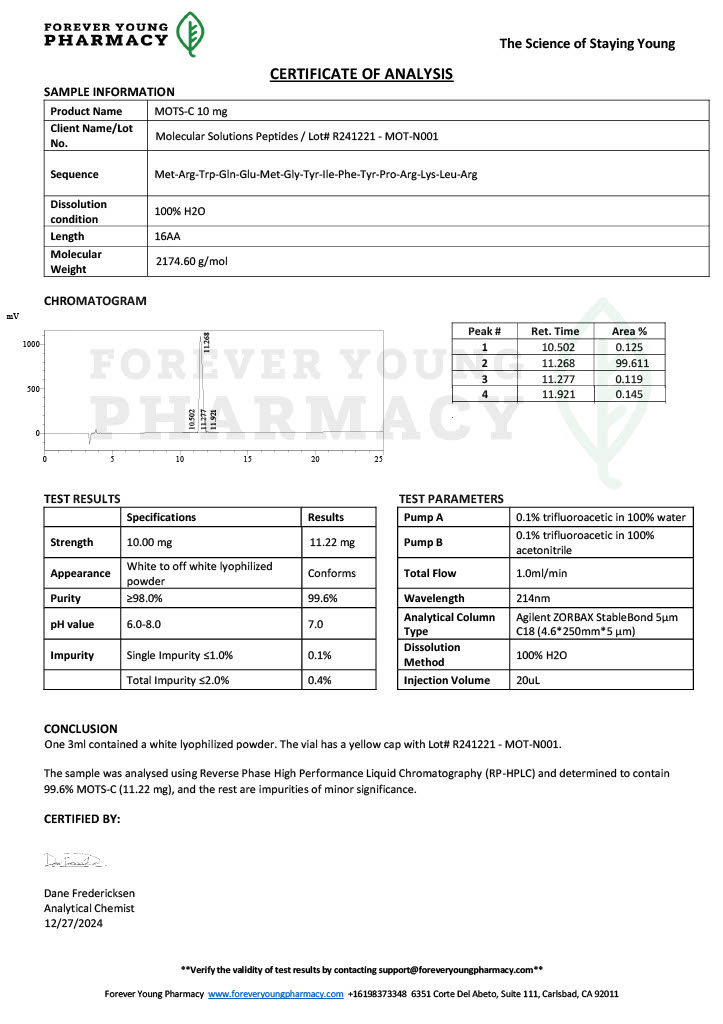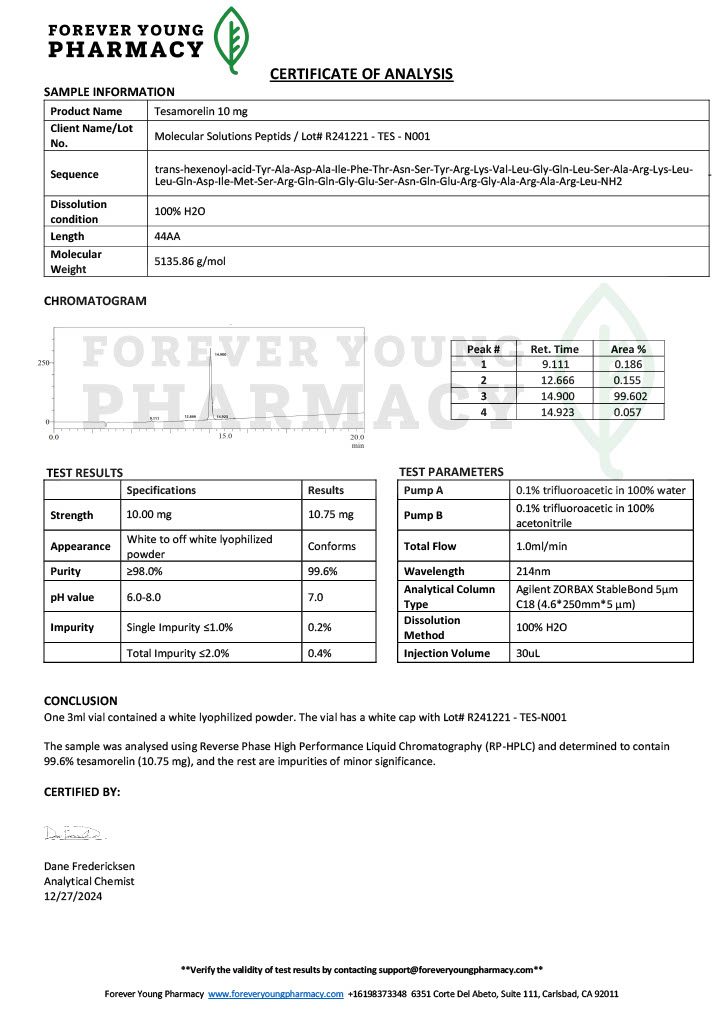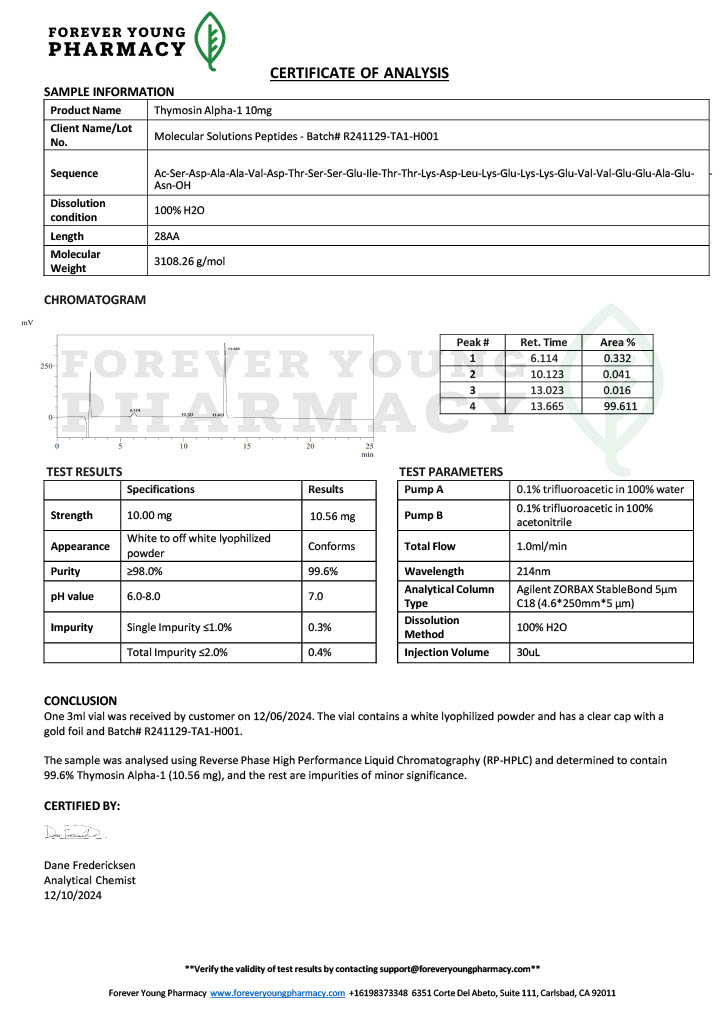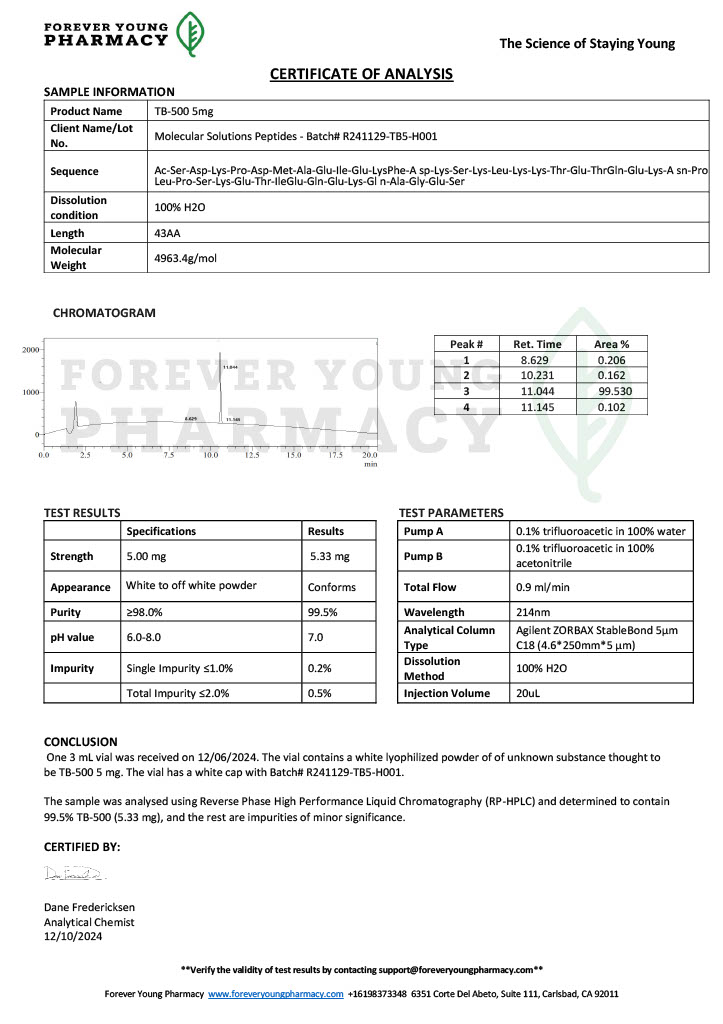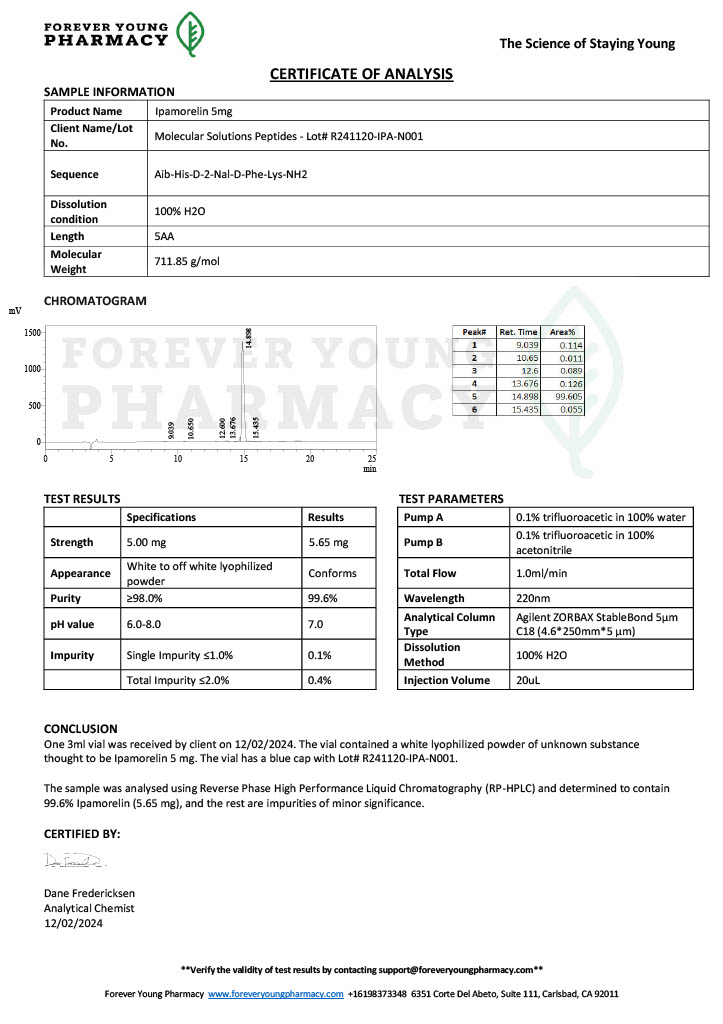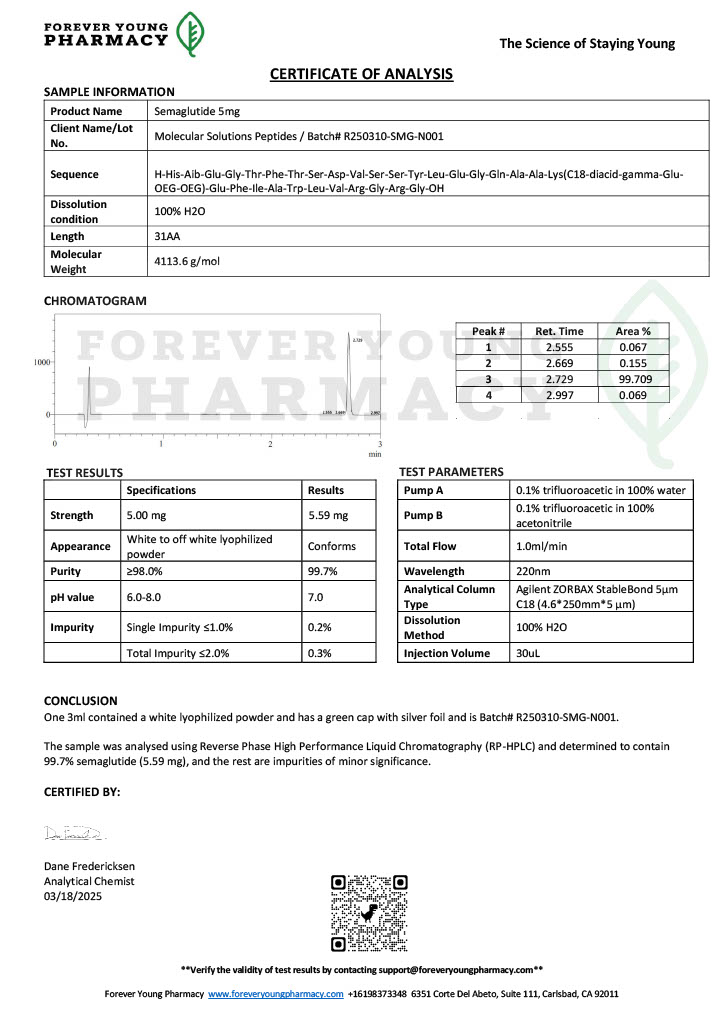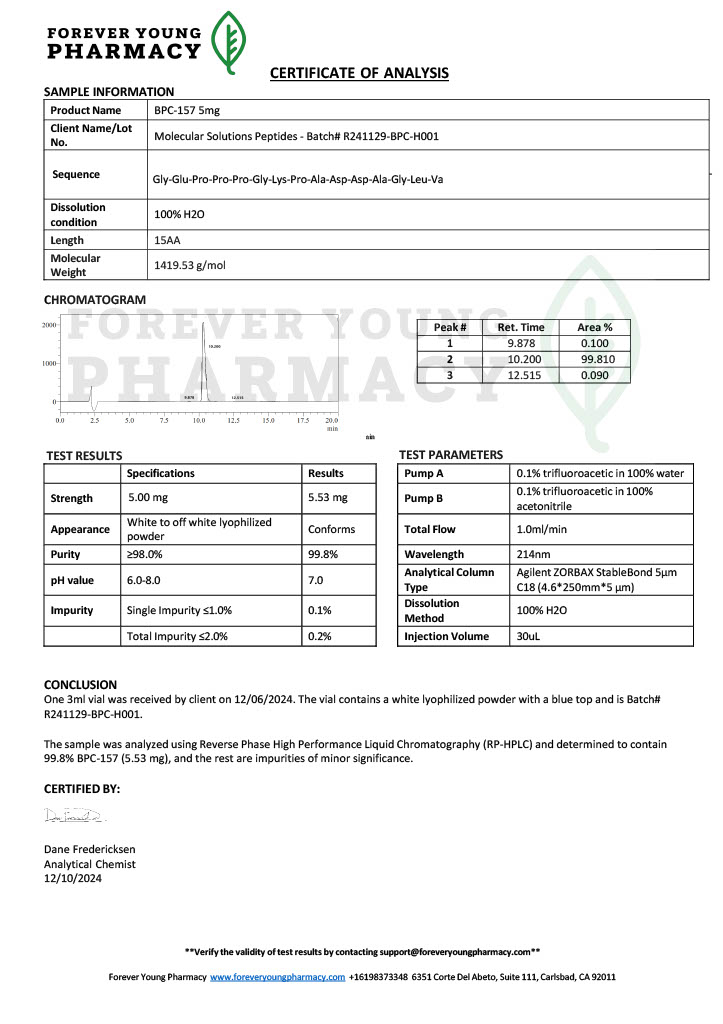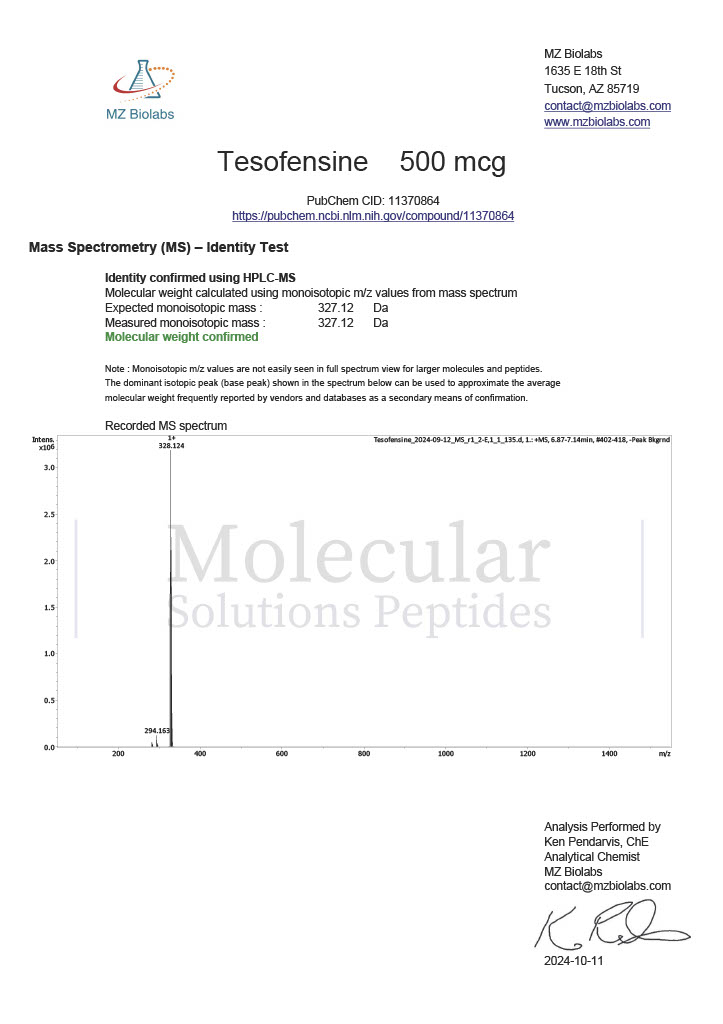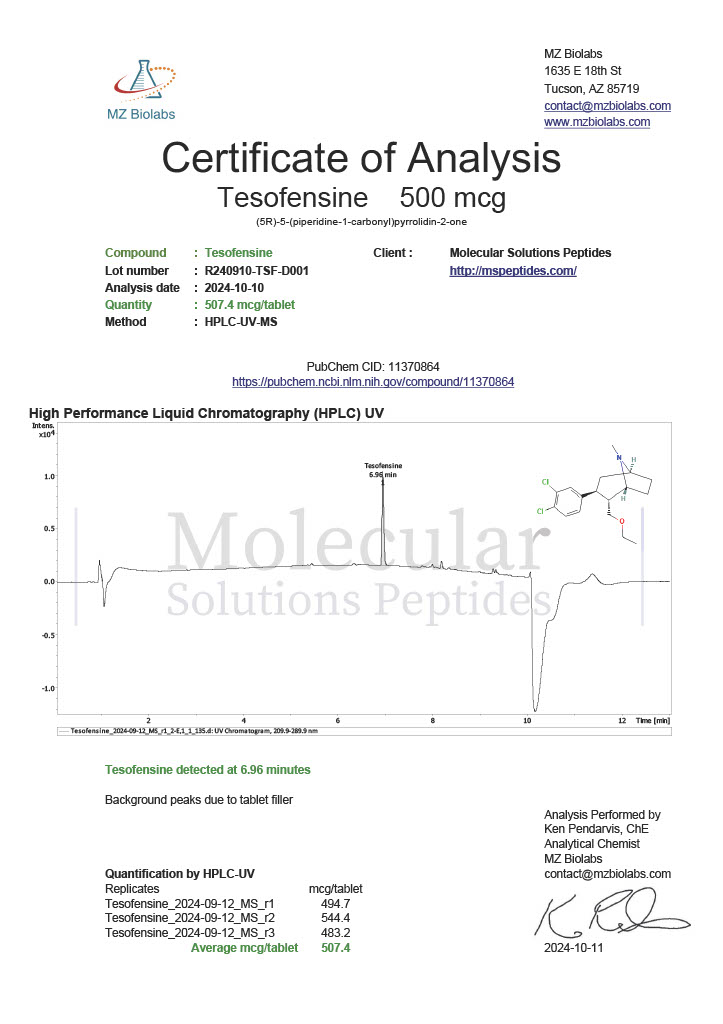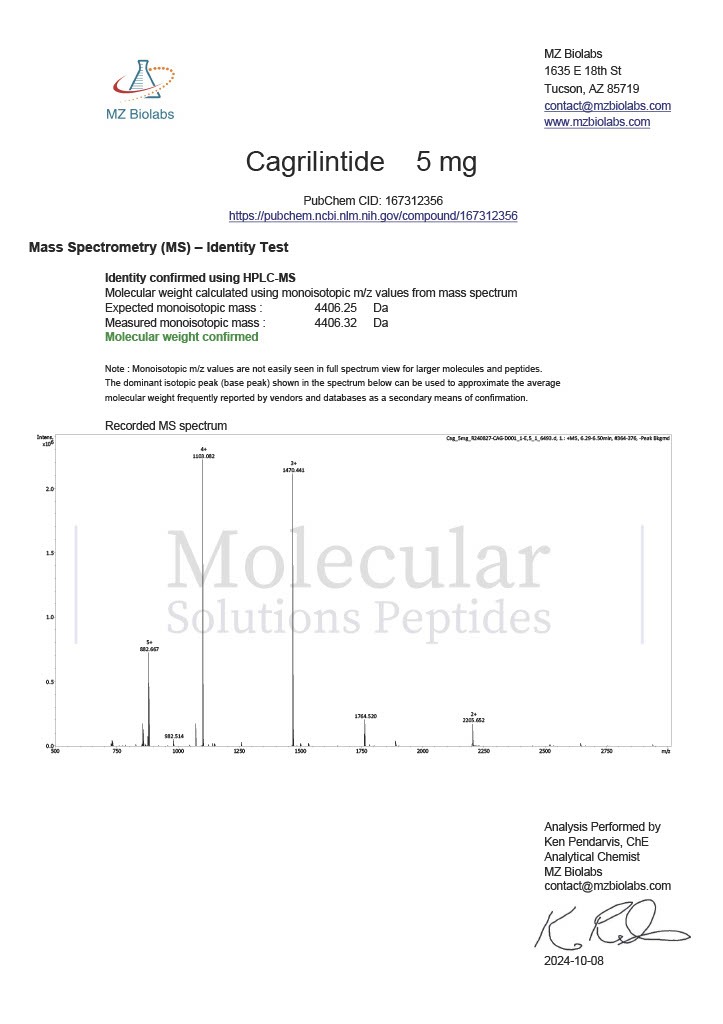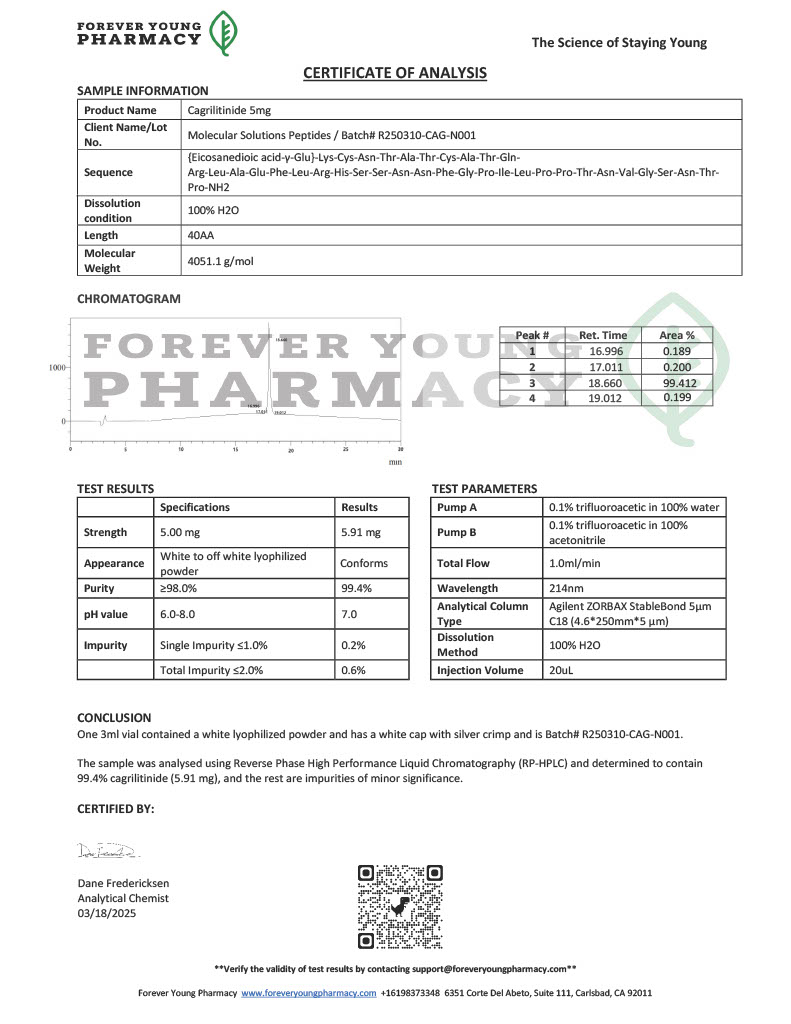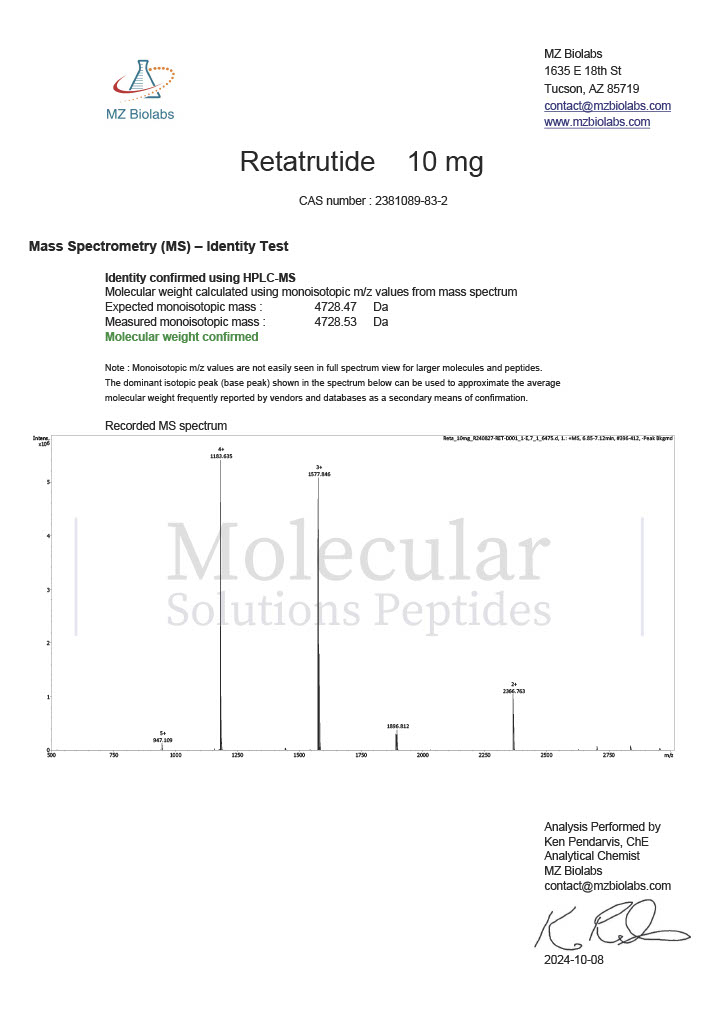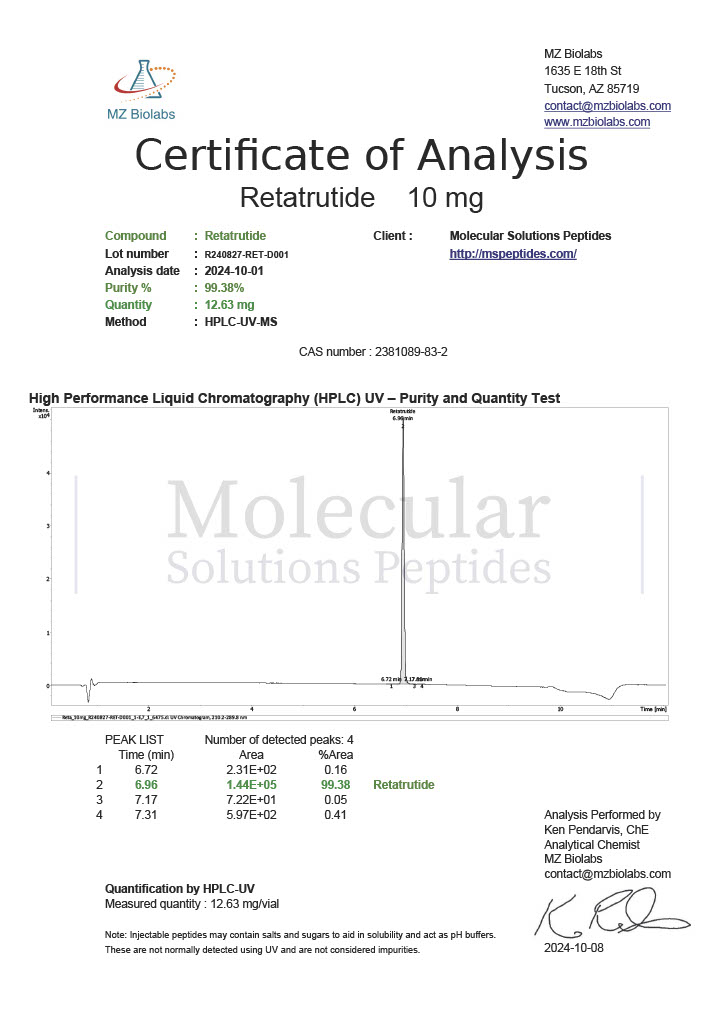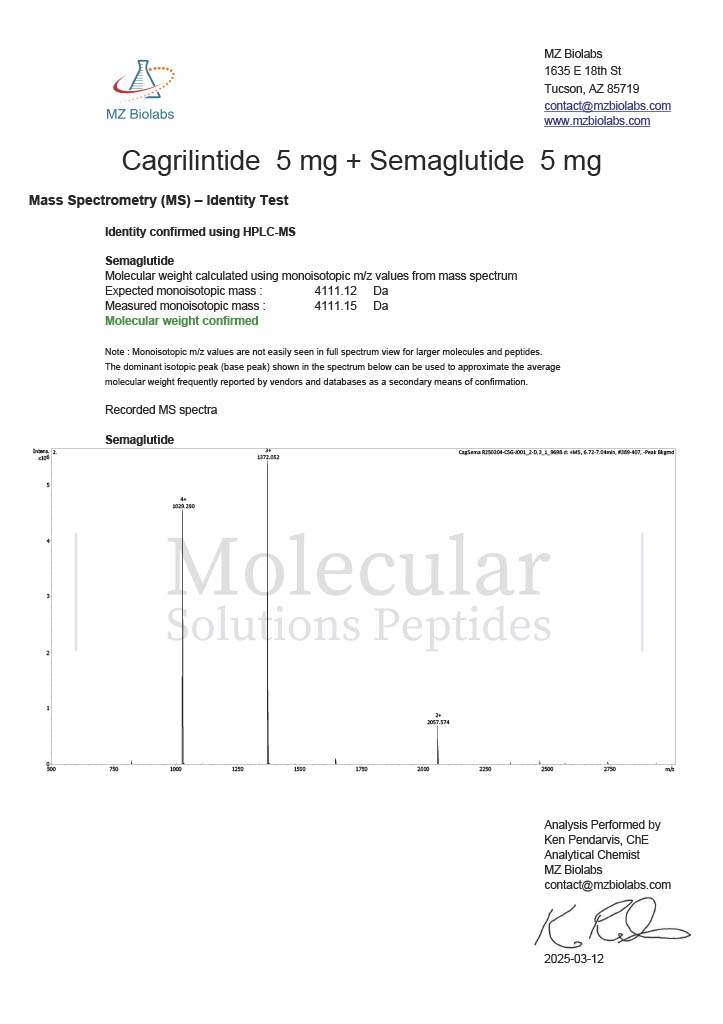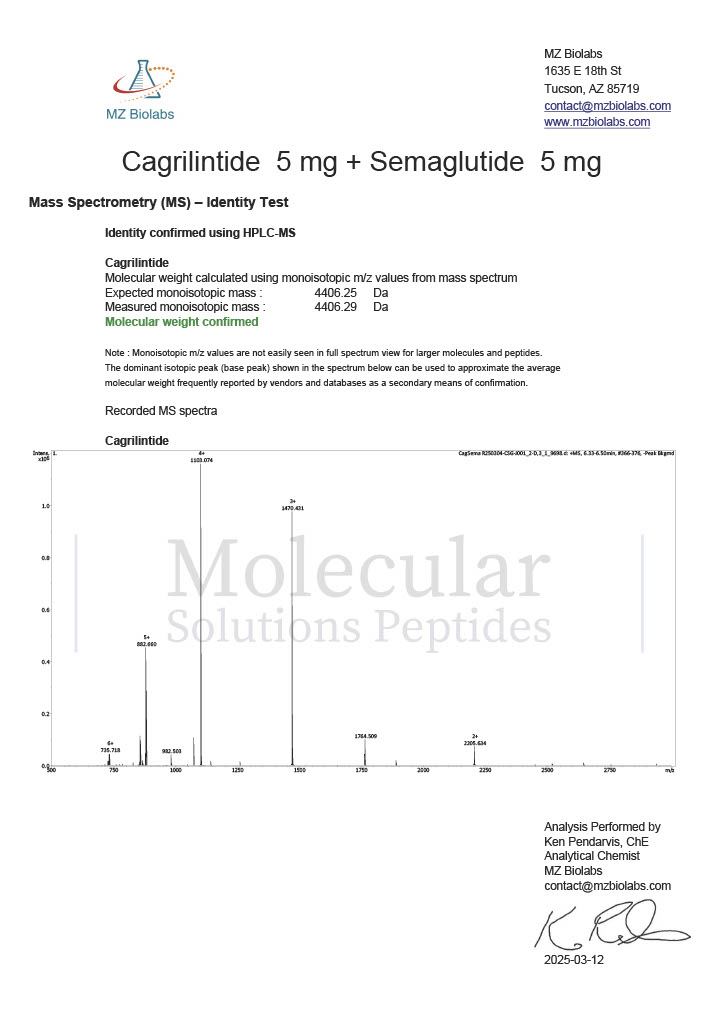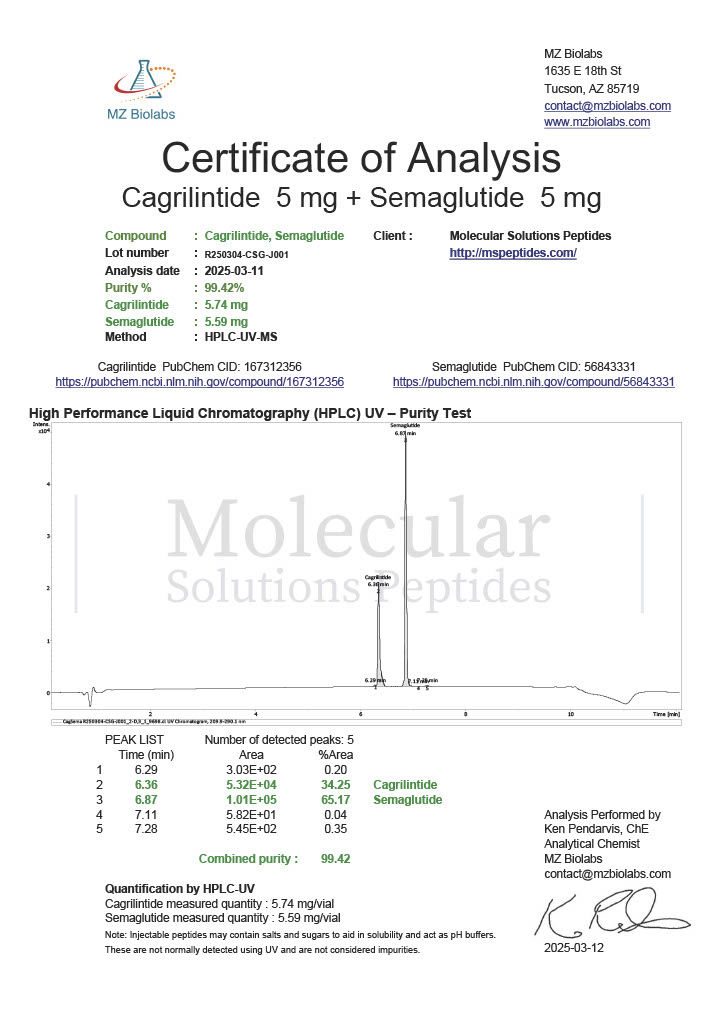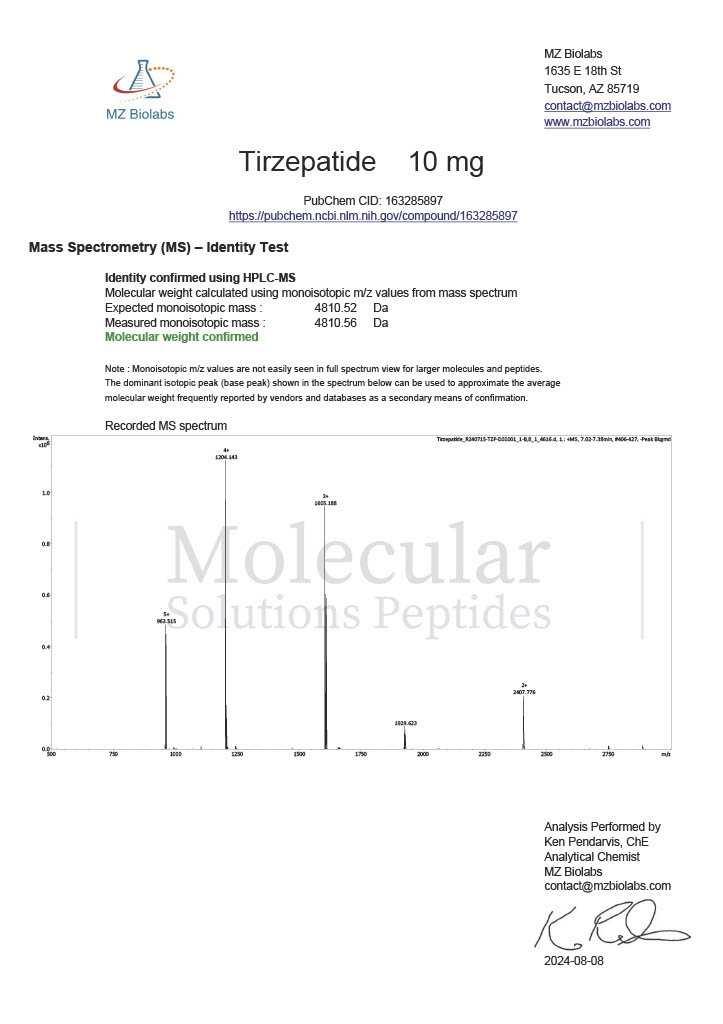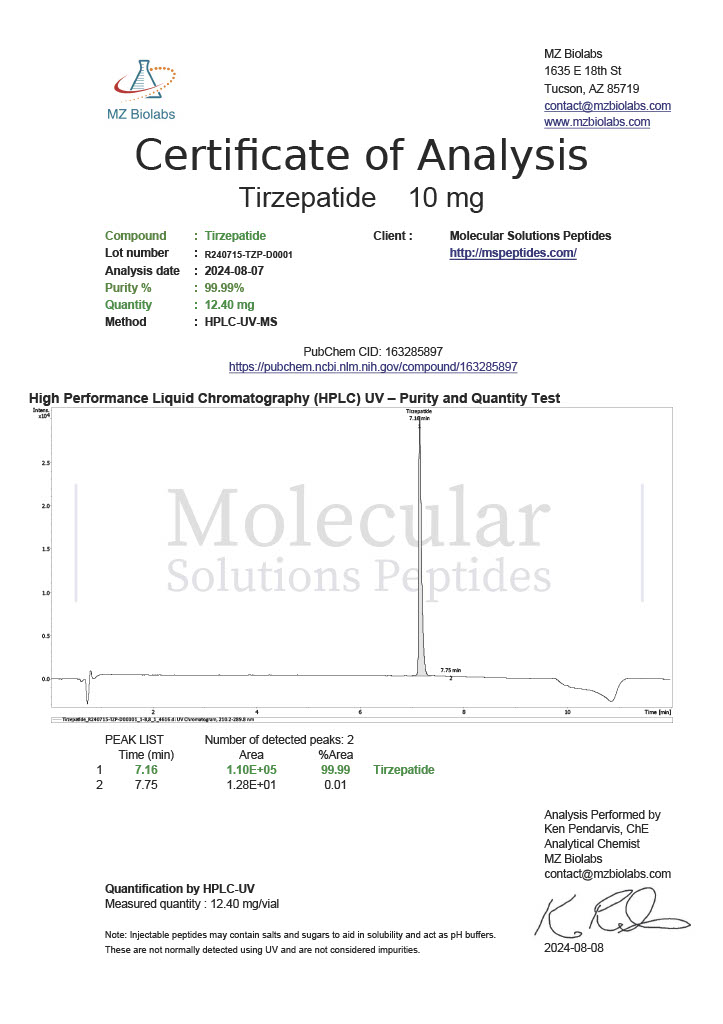In the expansive field of peptide research, few compounds have gained as much attention as Ghk-Cu, a copper-binding tripeptide complex with a notable reputation in regenerative science. Often mentioned in discussions surrounding wound healing, skin repair, and tissue regeneration, GHK-Cu has recently sparked interest in another promising domain: hair growth.
As researchers dig deeper into its biological functions, GHK-Cu is emerging as a potential candidate for supporting hair follicle health and possibly stimulating hair regrowth under laboratory conditions. While we do not promote or encourage its use in human therapies or cosmetic applications, we believe it’s essential to present the available evidence to better understand its implications in peptide research.
What Is GHK-Cu?
GHK-Cu is a naturally occurring copper complex of the peptide glycyl-L-histidyl-L-lysine. First identified in human plasma in the 1970s, it is known for its high affinity to bind copper ions (Cu2+), an essential mineral involved in many enzymatic processes related to tissue remodeling and repair. The tripeptide’s primary function in vivo appears to be the modulation of wound healing, inflammation, and tissue regeneration.
One of GHK-Cu’s most significant characteristics is its ability to modulate gene expression. According to studies, it can influence over 4,000 human genes, including those related to cell proliferation, collagen synthesis, anti-inflammation, and antioxidative pathways: all of which can be tied back to skin and hair follicle function.
GHK-Cu and Hair Follicle Biology: A Research-Based Connection
Although GHK-Cu was not originally studied with hair growth in mind, its known regenerative properties led scientists to investigate whether this peptide could influence hair follicle behavior. Here’s what the research says:
1. Influence on Dermal Papilla Cells (DPCs)
Dermal papilla cells are located at the base of hair follicles and play a critical role in controlling the hair growth cycle. Studies have found that GHK-Cu could stimulate the proliferation of DPCs in vitro. This cellular activation is important because these cells regulate the transition between the anagen (growth), catagen (regression), and telogen (resting) phases of hair follicles.
2. Promotion of Angiogenesis
Healthy blood flow is essential for sustaining active hair follicles. GHK-Cu is known to stimulate angiogenesis, the formation of new blood vessels, which could indirectly support hair growth by enhancing nutrient and oxygen delivery to hair follicle cells. GHK-Cu may promote vascular endothelial growth factor (VEGF) expression, an essential molecule in angiogenesis.
3. Anti-Inflammatory and Antioxidant Properties
Chronic inflammation and oxidative stress are known contributors to hair follicle miniaturization and loss. GHK-Cu has been shown to reduce levels of pro-inflammatory cytokines and neutralize reactive oxygen species (ROS). These properties may protect hair follicles from stress-induced damage, although such effects have primarily been observed in cultured skin cells and wound healing models.
4. Gene Modulation Favoring Hair Follicle Viability
In some studies, GHK-Cu was observed to alter gene expression patterns in a way that supports tissue regeneration and hair follicle health. The peptide upregulated genes involved in DNA repair, cell proliferation, and anti-apoptotic pathways, while downregulating those related to inflammation and fibrosis. This broad genomic influence is particularly significant because the hair cycle is tightly regulated at the gene expression level.
Animal Studies on GHK-Cu and Hair Growth
Although direct clinical trials on humans are limited or unpublished, there are animal model studies that lend support to the hypothesis that GHK-Cu may influence hair regrowth. One rodent study found that topical application of GHK-Cu significantly increased hair follicle size and hair density when compared to untreated control groups.
Researchers speculated that the peptide’s dual role in increasing blood flow and stimulating fibroblast activity contributed to these results. It’s important to reiterate that animal studies do not equate to clinical efficacy in humans, and further research is needed before drawing definitive conclusions.
Potential Synergistic Mechanisms
Some laboratory researchers have also investigated combining GHK-Cu with other peptides or compounds to enhance its effects. For example:
- GHK-Cu + Minoxidil: There is early-stage interest in whether GHK-Cu can complement the activity of minoxidil, another compound that promotes vasodilation and DPC activity.
- GHK-Cu + Biomimetic Peptides: Some in vitro studies have looked into pairing GHK-Cu with peptides that mimic growth factors to assess compounded effects on hair follicle stem cell activation.
However, the synergistic mechanisms remain largely theoretical or confined to in vitro environments.
Limitations and Ethical Considerations
The research surrounding GHK-Cu peptide for hair is promising, but it’s important to temper expectations with the understanding that most findings are based on preclinical or in vitro studies. There are several key limitations:
- Lack of large-scale clinical trials confirming hair regrowth efficacy in humans
- Variability in purity and stability of peptides used in studies
- No standardized dosing protocols for research models
- Unverified long-term safety profile for chronic application
As with all research peptides, GHK-Cu is not approved by the FDA for human use, and any use outside of controlled research environments may carry unknown risks.
The Future of GHK-Cu in Hair Research
GHK-Cu stands as one of the more intriguing peptides under investigation for its multi-functional properties, including its apparent potential to support hair follicle function in laboratory models. As gene modulation, regenerative medicine, and peptide research advance, it’s possible that this compound will become more central in discussions around hair loss research and tissue restoration.
Researchers interested in further exploring the role of GHK-Cu peptide for hair are encouraged to conduct well-structured, ethically sound studies to build a robust evidence base.
At Molecular Solutions Peptides, we understand the critical importance of quality, consistency, and scientific integrity in peptide research. That’s why we offer an extensive catalog of research-grade peptides and specialty compounds, including GHK-Cu, to support academic, institutional, and laboratory research initiatives.
Our peptides are synthesized to meet strict purity standards that researchers can rely on. Whether you’re studying wound repair, skin rejuvenation, or the GHK-Cu peptide for hair in your laboratory model, you can count on us to provide the tools you need.
We invite all researchers, from independent labs to major institutions, to explore our selection of peptides and reach out with questions about how Molecular Solutions can support your next project. Peptide science is moving fast and we’re proud to be your trusted partner in pushing the boundaries of discovery.
Disclaimer: All products on this site are for Research, Development use only. Products are Not for Human use of any kind. The statements made within this website have not been evaluated by the US Food and Drug Administration. The statements and the products of this company are not intended to diagnose, treat, cure or prevent any disease.


